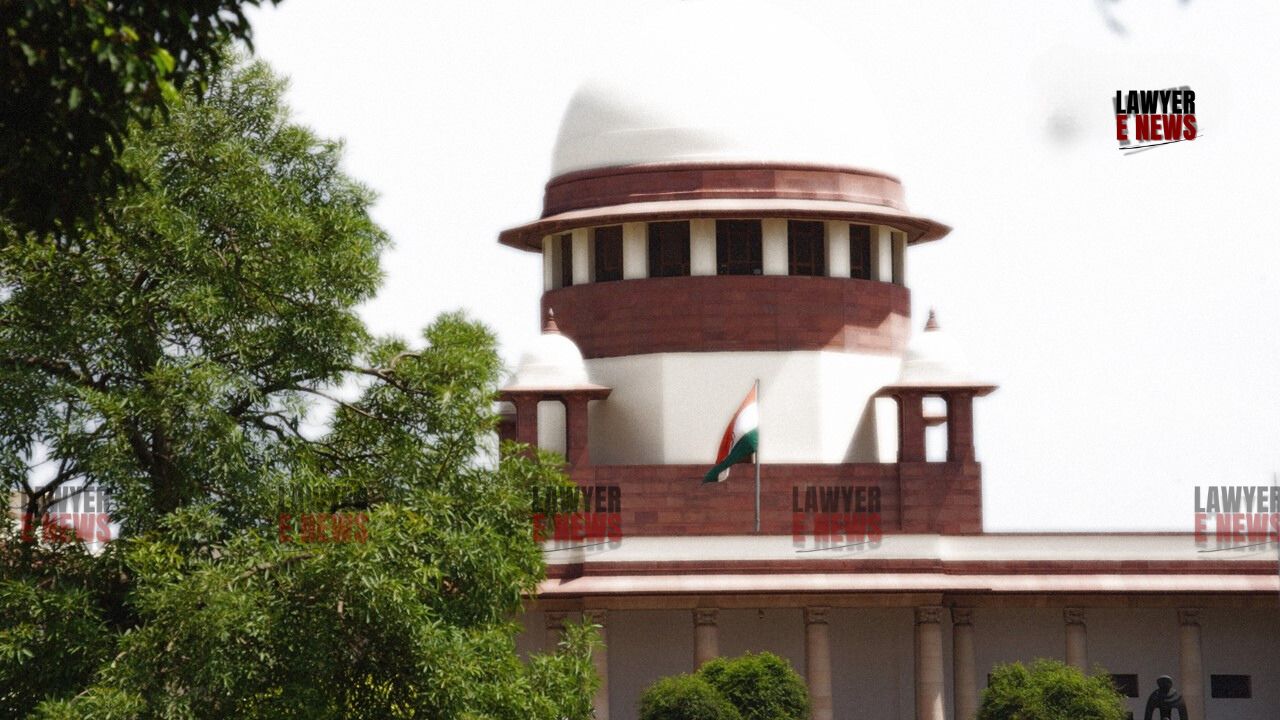-
by Admin
15 February 2026 5:35 AM



Supreme Court of India upholding the decisions of the Karnataka High Court and Trial Court. The case concerned the validity of an alleged oral gift (hiba) and the purported partition of property by a property owner during his lifetime under Mohammedan law. The Court dismissed the appeals filed by the appellants, affirming that neither a valid gift nor partition was legally established under Mohammedan law.
"Partition During Lifetime Invalid Under Mohammedan Law"
The central issue was whether Sultan Saheb, the original owner of the disputed property, had validly partitioned his property or gifted it orally to his heirs during his lifetime. The Court held:
“Under Mohammedan law, the right of heirs to the property arises only after the death of the property owner. Partition during the lifetime of the property owner is wholly impermissible. The doctrine of partial partition is also alien to Mohammedan law.”
Oral Gift Fails Without Clear Declaration of Intent
The appellants had argued that the property in question was orally gifted by Sultan Saheb, citing mutation entries as evidence of the transaction. However, the Supreme
Court reiterated the well-settled requirements of a valid oral gift under Mohammedan law:
Declaration of Intention by the Donor – The donor must unequivocally declare their intent to make the gift.
Acceptance by the Donee – The donee must accept the gift, either expressly or impliedly.
Delivery of Possession – The donor must deliver possession of the property, either physically or constructively.
While the appellants successfully demonstrated acceptance and delivery of possession, the Court found that no clear declaration of intention was established. “The primary requirement of ‘declaration of clear and unequivocal intention’ is not proved,” the Court noted.
The Supreme Court further clarified that mutation entries in revenue records cannot substitute the requirement of a clear declaration of intent or confer title to property. It observed:
“Mutation entries serve only administrative purposes for collecting land revenue. They do not create or extinguish title nor confer ownership rights.”
The case arose from a partition suit filed by the heirs of Rabiyabi, a deceased daughter of Sultan Saheb, against other heirs of the property. The plaintiffs sought their rightful share in the property, alleging exclusion from succession. The defendants claimed that the property was either partitioned during Sultan Saheb’s lifetime or gifted to his sons by way of an oral gift.
The Trial Court held that neither partition nor a valid oral gift was established and granted the plaintiffs their rightful share in the property. The High Court dismissed the defendants’ appeal, reiterating that Mohammedan law prohibits partition during the lifetime of the owner and finding insufficient evidence of a valid gift.
The appellants approached the Supreme Court, challenging these findings.
The Supreme Court extensively analyzed the principles of Mohammedan law, relying on classical Islamic jurisprudence, authoritative texts, and precedents. It emphasized that Mohammedan law prohibits partition during the lifetime of a property owner, as heirs’ rights are contingent on the owner’s death. The Court also noted that Mohammedan law distinguishes itself from Hindu law by the absence of the concept of joint family or coparcenary, observing:
“In Mohammedan law, so long as a person is alive, they are the absolute owner of their property. Heirs acquire no rights during the owner’s lifetime.”
The Court rejected the appellants’ argument that the mutation entry, which described the transaction as a “partition,” should be interpreted as an oral gift. The Court underscored the importance of nomenclature in legal documents, stating:
“Partition and gift are distinct legal concepts with different requisites. The nomenclature used in a document cannot be disregarded unless it leads to absurdity. The words ‘partition of the property done by Sultan Abdul Khader Shek’ clearly indicate his intention to divide the property, not to gift it.”
No Valid Gift Without Written or Oral Declaration
The Court also clarified that under Mohammedan law, registration of a gift is not required, and a valid gift can be oral. However, all three requisites—declaration, acceptance, and possession—must be satisfied for the gift to be valid. The Court found that in this case, the lack of a clear declaration of intention rendered the alleged oral gift invalid.
The Supreme Court concluded that neither the purported oral gift nor the alleged partition was legally valid under Mohammedan law. It dismissed the appeals, affirming the plaintiffs’ entitlement to their rightful share in the property as per Mohammedan inheritance principles.
“The correct position of law has been stated as not applying registration to gifts under Mohammedan law. However, the concept of partition is foreign to Mohammedan law during the lifetime of the ancestor. The appeals are devoid of merit and stand dismissed,” the Court held.
Date of Decision: December 19, 2024
